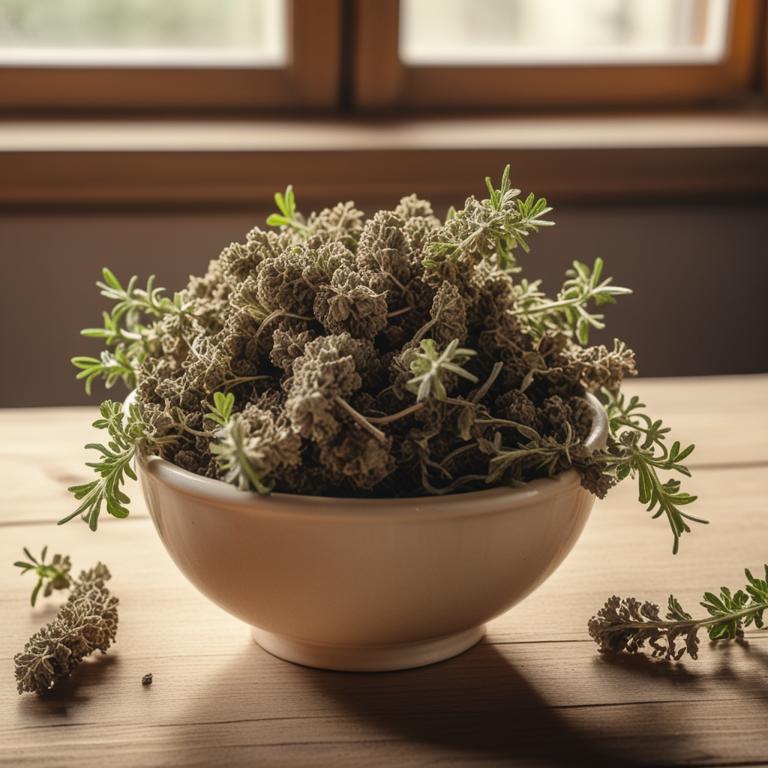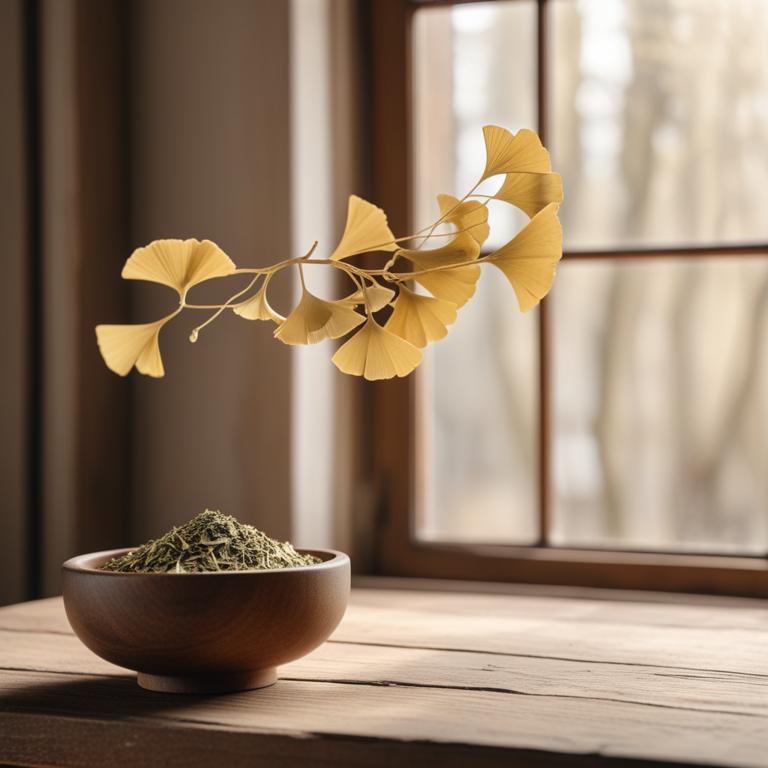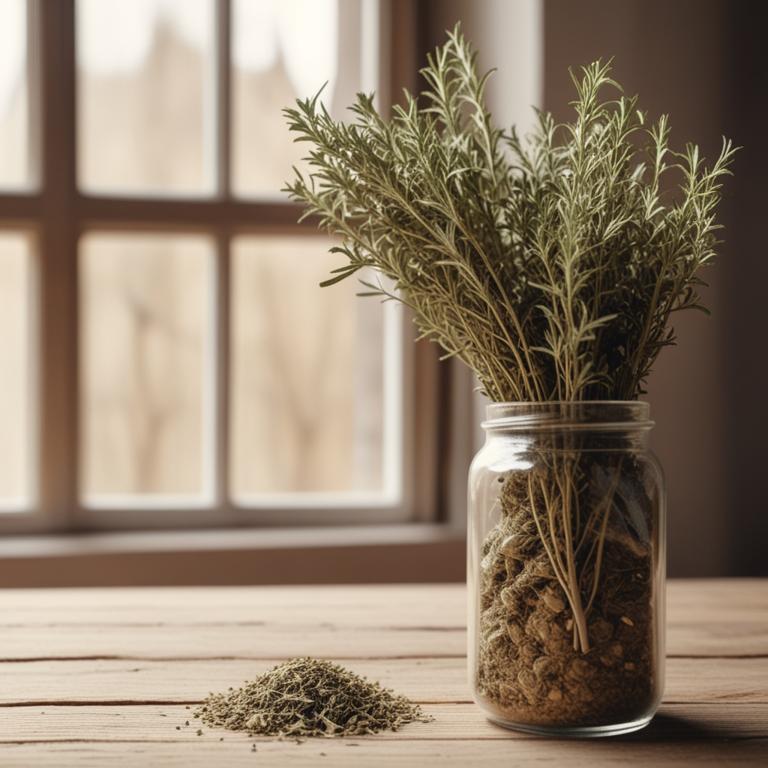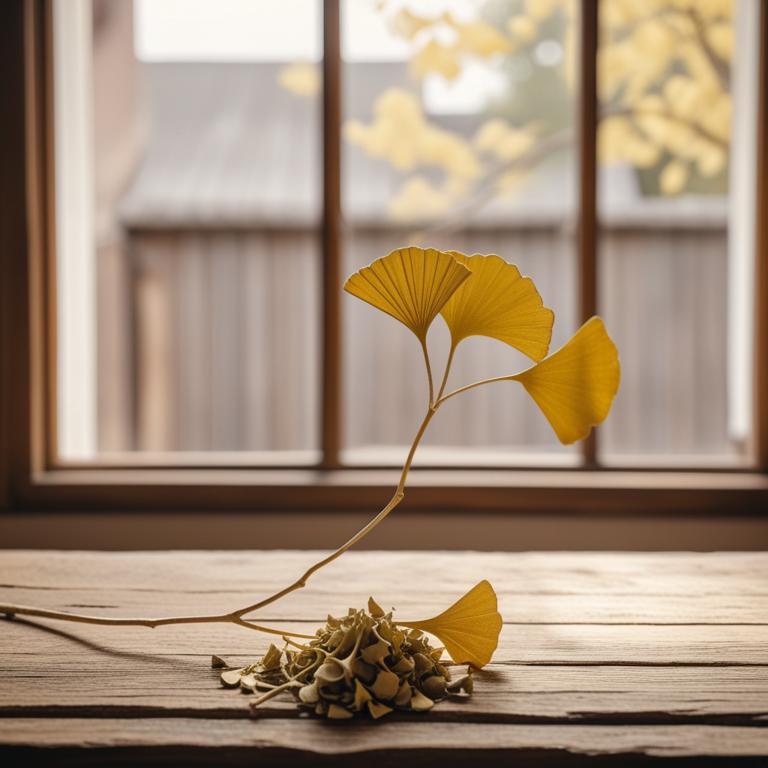Updated: Nov 30, 2024
9 Herbal Tinctures For Hiccups
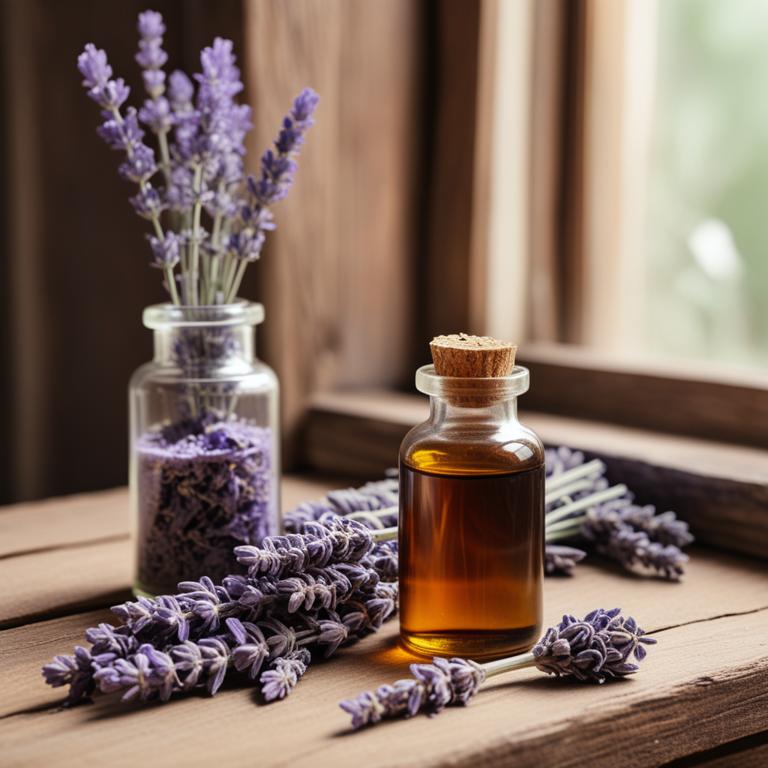
Herbal tinctures have been used for centuries to relieve hiccups, and they're a great alternative to traditional remedies.
When you drink herbal tea, it helps to calm down the nerves that cause hiccups. The herbs in these teas work by soothing the diaphragm, which is the muscle that controls breathing. For example, Zingiber officinale, also known as ginger, has natural anti-inflammatory properties that can help to calm down the diaphragm. When you drink ginger tea, it can help to relax the muscle and stop the hiccup spasms. Foeniculum vulgare, or fennel, is another herb that's often used to relieve hiccups. It has a calming effect on the stomach and the diaphragm, making it easier to breathe and relax.
Glycyrrhiza glabra, or licorice root, is also known for its soothing properties. It can help to calm down the nervous system and relax the diaphragm, making it a great remedy for hiccups. Drinking herbal tea can bring many benefits to your life. Not only can it help to relieve hiccups, but it can also help to calm down your nerves and promote relaxation. When you're feeling stressed or anxious, drinking a soothing herbal tea can help to calm you down and make you feel more relaxed. Additionally, many herbal teas have antioxidant properties, which can help to protect your body from damage caused by free radicals.
This can help to promote overall health and well-being.
This article explains in detail what are the best herbal teas for hiccups and wh.
Also, you may be interested in...
Today Free Bonus!
The Ultimate Herb Drying Checklist
(For Long-Lasting Powerful Medicinal Effect)
How to easily dry herbs that don't mold and that keep their strong medicinal power for more than 1 year.
Table of Contents
1. Zingiber officinale

Zingiber officinale tinctures contains the bioactive constituents gingerol and shogaol, which have anti-inflammatory properties.
These compounds help to relax the diaphragm muscle, the primary cause of hiccups. The anti-inflammatory properties also help to soothe the digestive system, which can contribute to hiccups in some cases. The warming properties of gingerol and shogaol can also help to stimulate digestion and relieve any discomfort or irritation that may be causing hiccups.
By relaxing the diaphragm and soothing the digestive system, Zingiber officinale tinctures can provide relief from hiccups.
- Gather 2 cups of fresh Zingiber officinale (ginger) roots and 1 cup of 80-proof vodka.
- Peel the ginger roots and chop them into small pieces.
- Combine the chopped ginger with the vodka in a clean glass jar.
- Seal the jar and let it sit in a cool dark place for 2-3 weeks, shaking it every day.
- Strain the liquid through a cheesecloth into another clean glass jar and discard the solids.
2. Foeniculum vulgare
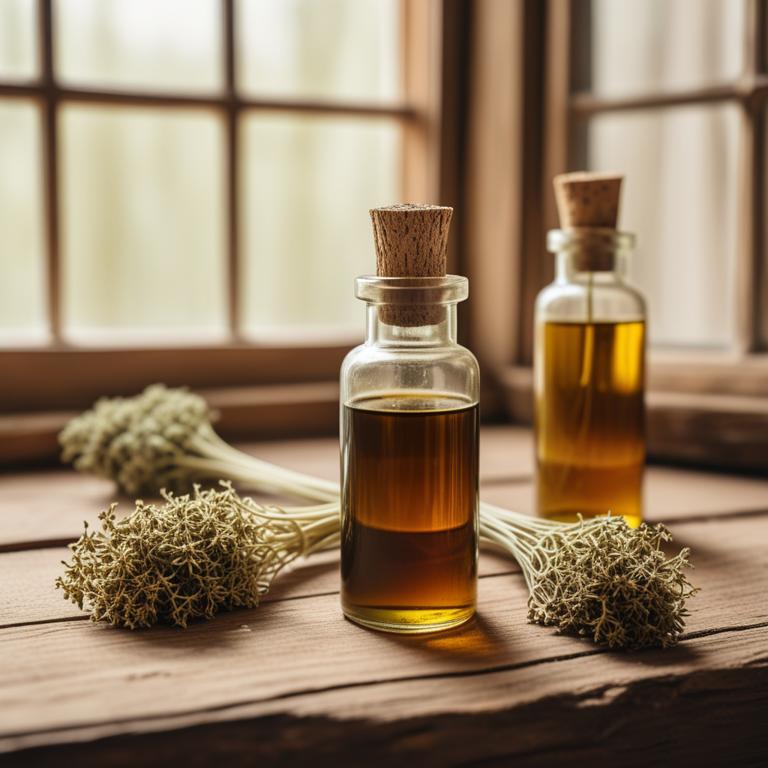
Foeniculum vulgare tinctures contains the bioactive constituents anethole and limonene, which have anti-spasmodic and anti-inflammatory properties.
These properties help to relax the diaphragm muscles that are responsible for hiccups. Anethole also acts as a smooth muscle relaxant, further easing the spasms that cause hiccups. Limonene has a calming effect on the nervous system, which can help to stop the hiccup spasms.
By relaxing the diaphragm muscles and calming the nervous system, Foeniculum vulgare tinctures can provide relief from hiccups.
- Gather 1 cup of Foeniculum vulgare roots, 2 cups of 80% vodka, and a glass jar with a lid.
- Chop the Foeniculum vulgare roots into small pieces and place them in the glass jar.
- Pour 2 cups of 80% vodka over the chopped roots, making sure they are completely covered.
- Seal the jar and let it sit in a cool, dark place for 2-3 weeks, shaking the jar every day.
- Strain the liquid through a cheesecloth or a coffee filter into another glass jar, discarding the roots. Store the tincture in a cool, dark place.
3. Glycyrrhiza glabra

Glycyrrhiza glabra tinctures contains glycyrrhizin, a bioactive constituent that helps to calm the nerves and muscles in the throat and diaphragm, which are responsible for hiccup spasms.
Glycyrrhizin has anti-inflammatory properties that reduce irritation and inflammation in the throat, making it a soothing remedy for hiccups. The tannins present in Glycyrrhiza glabra tinctures also help to relax the diaphragm, allowing it to return to its normal function and stop hiccup spasms. Additionally, the tincture's expectorant properties help to clear mucus from the airways, which can contribute to hiccup spasms.
By calming the nerves and relaxing the diaphragm, Glycyrrhiza glabra tinctures can help to stop hiccup spasms and provide relief from this annoying condition.
- Gather 100g of dried Glycyrrhiza glabra roots and 1 cup of 80% ethanol
- Combine the roots and ethanol in a clean glass jar. Stir well and seal the jar
- Steep the mixture in a cool, dark place for 2 weeks. Shake the jar daily
- After 2 weeks, strain the liquid through a cheesecloth into another clean glass jar. Discard the solids
- Bottle the tincture and store it in a cool, dark place. Take 10-20 drops as needed to relieve hiccups
4. Cinchona officinalis

Cinchona officinalis tinctures contains bovine alkaloids like quinine and cinchonine.
These compounds have antispasmodic properties, which help relax the diaphragm muscle that controls breathing. When the diaphragm is relaxed, it can stop contracting irregularly and causing hiccups. The alkaloids in Cinchona officinalis tinctures also have anti-inflammatory properties, which can help soothe any irritation in the throat that may be contributing to the hiccups.
By reducing inflammation and relaxing the diaphragm, Cinchona officinalis tinctures can help stop hiccups naturally.
- Gather 1 cup of Cinchona officinalis bark, 2 cups of vodka, and a clean glass jar with a lid.
- Cut the Cinchona officinalis bark into small pieces and place them in the glass jar.
- Pour the vodka over the Cinchona officinalis bark, making sure all the pieces are covered.
- Seal the jar and let it sit for 2 weeks in a cool, dark place, shaking the jar every day.
- Strain the liquid through a cheesecloth into another clean glass jar, discard the Cinchona officinalis bark. Use 5-10 drops of the tincture for hiccups, as needed.
5. Pimpinella anisum
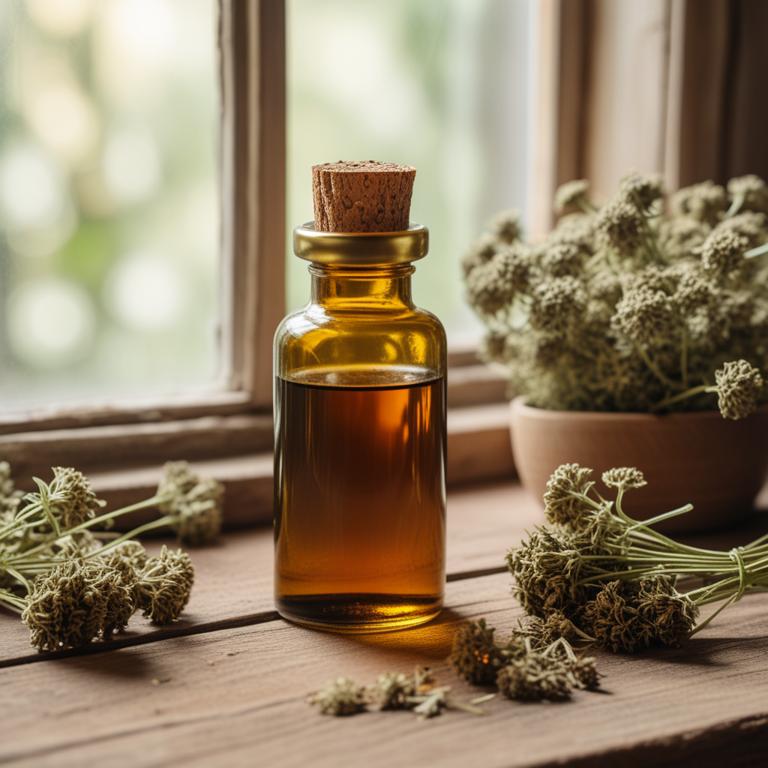
Pimpinella anisum tinctures contains anethol and estragole, two bioactive constituents that have anti-spasmodic and anti-inflammatory properties.
These properties help relax the diaphragm muscle, which is responsible for hiccup spasms. Anethol, in particular, has a calming effect on the nervous system, reducing muscle contractions and helping to stop hiccups. Etragole also has a soothing effect on the digestive system, which can sometimes contribute to hiccups.
By addressing the root causes of hiccups, Pimpinella anisum tinctures can provide relief from this annoying condition.
- Gather 1 cup of Pimpinella anisum seeds and 2 cups of vodka in a clean glass jar.
- Fill a cup with boiling water and let it cool for 10 minutes.
- Add the cooled water to the jar with the Pimpinella anisum seeds and vodka.
- Steep the mixture in a cool, dark place for 2 weeks, shaking the jar daily.
- Strain the mixture and store the tincture in a clean glass bottle. Use 10-20 drops to relieve hiccups.
6. Mentha x piperita
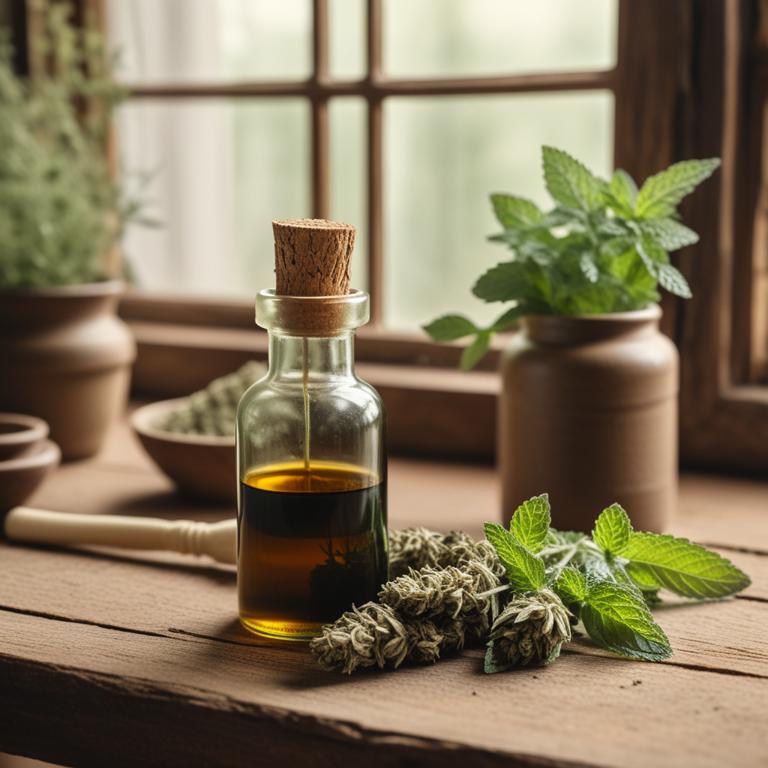
Mentha x piperita tinctures contains the bioactive constituents menthol and menthone, which have a calming effect on the nerves.
These compounds help to relax the diaphragm and reduce spasmodic contractions that cause hiccups. Menthol's anesthetic properties also numb the nerves in the throat, which can help to stop hiccup spasms. The tincture's ability to reduce inflammation and calm the nervous system can also help to alleviate hiccup symptoms.
By soothing the diaphragm and numbing the nerves, Mentha x piperita tinctures can help to quickly and effectively stop hiccups.
- Gather 1 cup of fresh Mentha x piperita leaves and 2 cups of 80-proof vodka.
- Chop the leaves finely and place them in a clean glass jar.
- Pour the vodka over the leaves, making sure they are fully covered.
- Seal the jar and let it sit in a cool, dark place for 2 weeks, shaking the jar every day.
- Strain the mixture through a cheesecloth or a coffee filter into another clean glass bottle. Discard the solids. Use 5-10 drops of the tincture to help with hiccups.
7. Cuminum cyminum
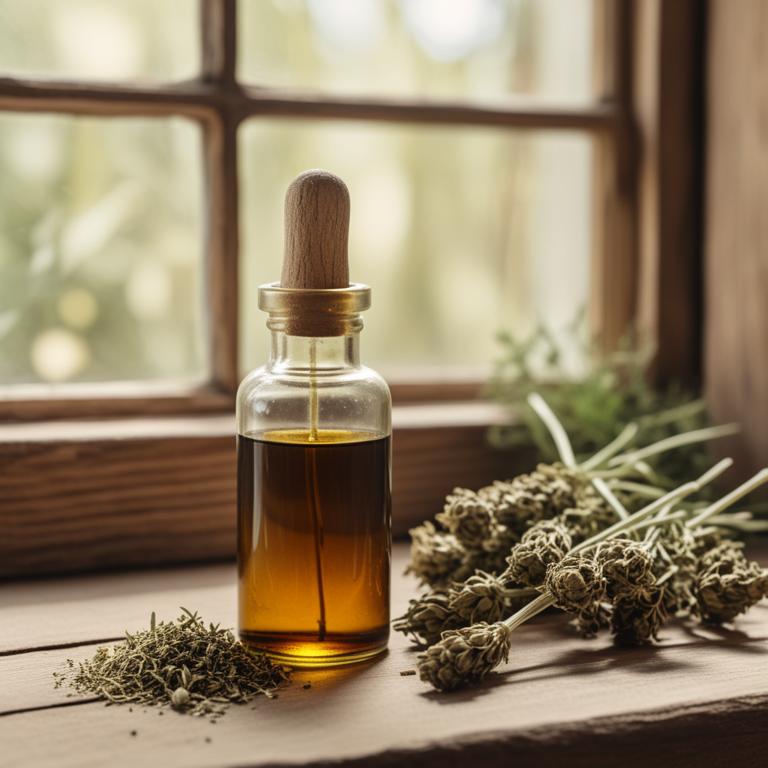
Cuminum cyminum tinctures contains a concentrated form of carminative and anti-spasmodic compounds found in the seeds of the cumin plant.
The primary bioactive constituents, including cuminaldehyde, limonene, and linalool, exhibit properties that help soothe the diaphragm and abdominal muscles. These compounds can help relax tense muscles and reduce spasms that often contribute to hiccups. Additionally, the antispasmodic properties of these compounds can help calm the nervous system and reduce the frequency and severity of hiccups.
By applying Cuminum cyminum tinctures, individuals may experience relief from hiccup symptoms due to its ability to calm the digestive system and relax the muscles.
- Gather 1/2 cup of Cuminum cyminum seeds and 1 cup of 80-proof vodka.
- Combine the Cuminum cyminum seeds and vodka in a clean glass jar.
- Steep the mixture for 2 weeks in a cool, dark place, shaking the jar daily.
- Strain the mixture through a cheesecloth or coffee filter into another clean glass jar.
- Store the Cuminum cyminum tincture in a dark glass bottle and take 5-10 drops as needed for hiccup relief.
8. Curcuma longa

Curcuma longa tinctures contains a high concentration of bioactive compounds like curcumin, demethoxycurcumin, and bisdemethoxycurcumin.
These compounds have anti-inflammatory and antispasmodic properties that help relax the diaphragm and muscles in the throat, which are often responsible for hiccups. The curcuminoids in Curcuma longa tinctures also have a calming effect on the nervous system, which can help reduce stress and anxiety that may trigger hiccups. By soothing the diaphragm and nervous system, Curcuma longa tinctures may help stop hiccups by interrupting the abnormal muscle contractions that cause them.
The antispasmodic properties of Curcuma longa tinctures can help regulate the abnormal contractions of the diaphragm and other muscles, providing relief from hiccups.
- Gather 1 cup of dried Curcuma longa roots and 2 cups of vodka in a clean glass jar.
- Fill a clean glass container with 2 cups of water and bring it to a boil.
- Add the dried Curcuma longa roots to the boiling water and let them steep for 10 minutes.
- Strain the liquid and mix it with the vodka in the glass jar. Cover the jar and let it sit in a cool, dark place for 2-3 weeks, shaking it every day.
- Strain the liquid again and discard the roots. Transfer the tincture to a clean glass bottle and store it in a cool, dark place. Use 10-20 drops of the tincture to treat hiccups.
9. Lavandula angustifolia

Lavandula angustifolia tinctures contains the bioactive constituents linalool and linalyl acetate, which have a calming effect on the nervous system.
These compounds help to relax the diaphragm and other muscles involved in hiccup spasms. Linalool, in particular, has been shown to have a sedative effect on the nervous system, which can help to stop hiccup episodes. Additionally, the antispasmodic properties of linalyl acetate can help to calm down the sudden contractions of the diaphragm that cause hiccups.
By relaxing the diaphragm and other muscles, Lavandula angustifolia tinctures can help to provide relief from hiccup spasms.
- Get 250ml of 80% vodka and 250ml of water in a cup.
- Add 25g of dried Lavandula angustifolia flowers to a clean glass jar.
- Pour the vodka and water mixture over the flowers in the jar.
- Close the jar and let it sit in a cool, dark place for 2 weeks, shaking the jar every day.
- Strain the liquid through a cheesecloth or a coffee filter into another clean glass jar. Discard the solids.
FAQ
Can drinking herbal tea prevent hiccups from forming?
Drinking herbal tea, especially ginger tea, may help soothe the nerves and calm the body, which could potentially prevent hiccups.
Ginger has natural calming properties that can relax the diaphragm, the muscle responsible for hiccups.
Some people find that a warm cup of ginger tea helps to calm their hiccups and stop them from forming.
Is it safe to consume herbal teas for hiccups every day?
While herbal teas can help soothe hiccups, it's not recommended to drink them daily for this purpose.
Some herbal teas can be strong and might interact with other medications or worsen health conditions.
It's best to limit consumption to when you need it and choose teas that are specifically labeled as safe for frequent use.
How long does it take for herbal teas to show results in hiccups?
Herbal teas can help soothe hiccups, but it's hard to say exactly when you'll feel relief.
Some people report getting rid of hiccups within a few minutes of drinking tea, while others might need to try different combinations of herbs or drink tea multiple times before their hiccups stop.
It's different for everyone.
What time of day is best to drink herbal tea for hiccups?
If you have the hiccups, try sipping herbal tea when you're most relaxed, usually around 30 minutes to an hour before bedtime.
This allows your body to unwind and calm down, which might help your hiccups go away.
Ginger tea or chamomile tea can be soothing options to try.
Related Articles
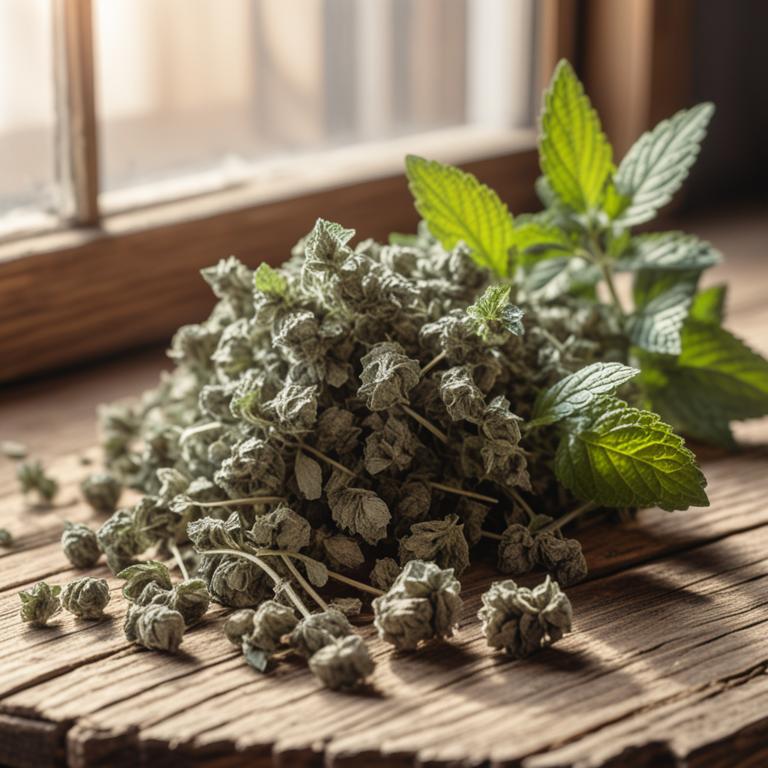
Understanding Headaches: Causes, Herbal Remedies, and Natural Preparations
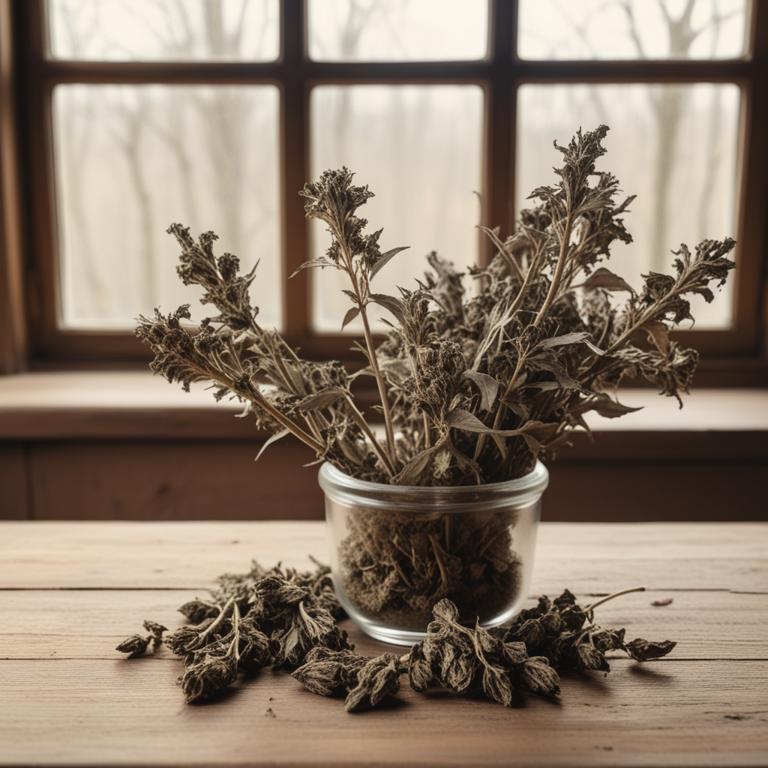
Taste Loss: Causes, Medicinal Herbs, and Herbal Preparations for Prevention
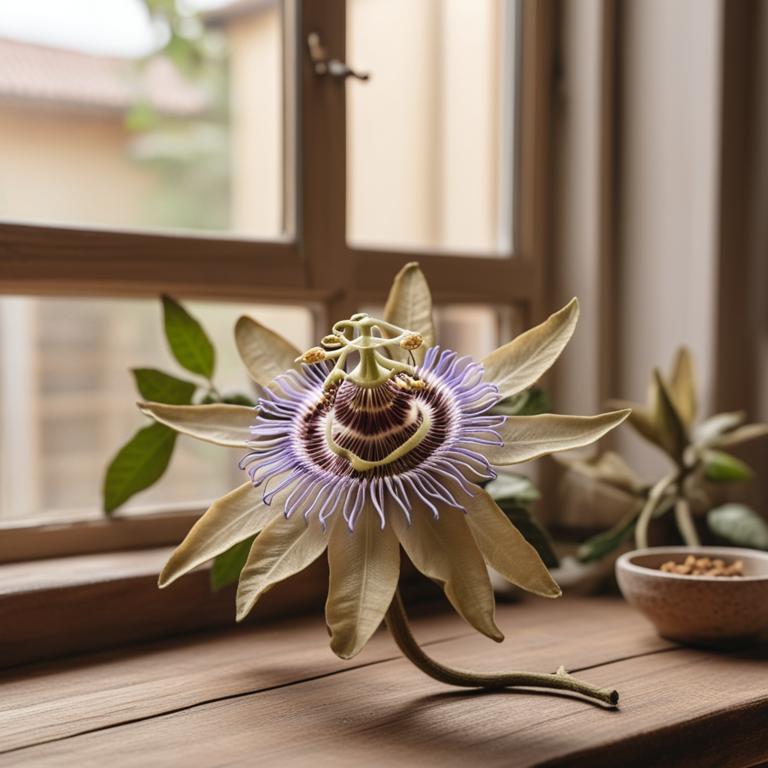
Dizziness: Causes, Symptoms, and Natural Relief with Medicinal Herbs and Preparations
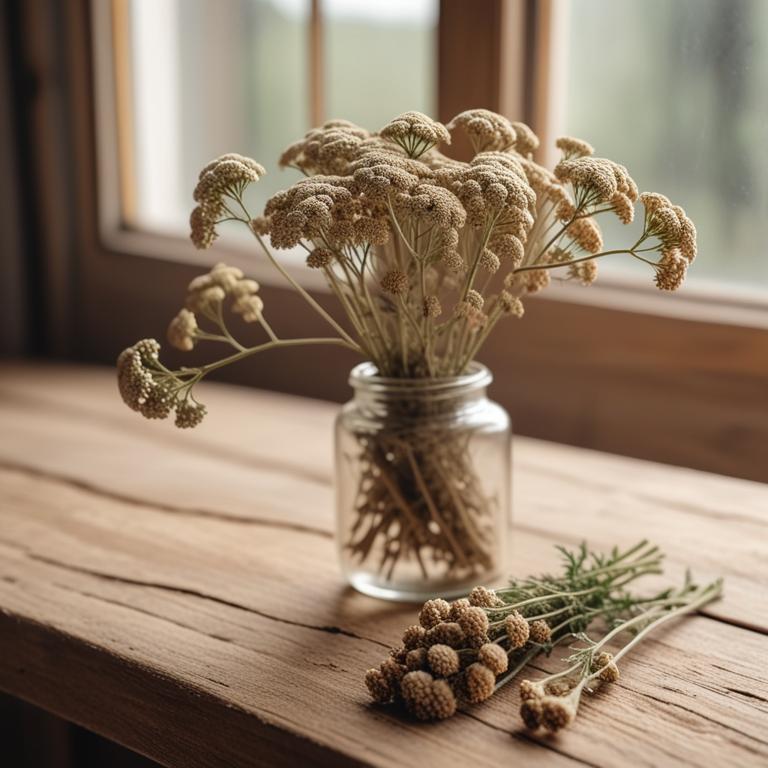
Herbal Solutions for Eye Strain: Causes, Prevention, and Cure
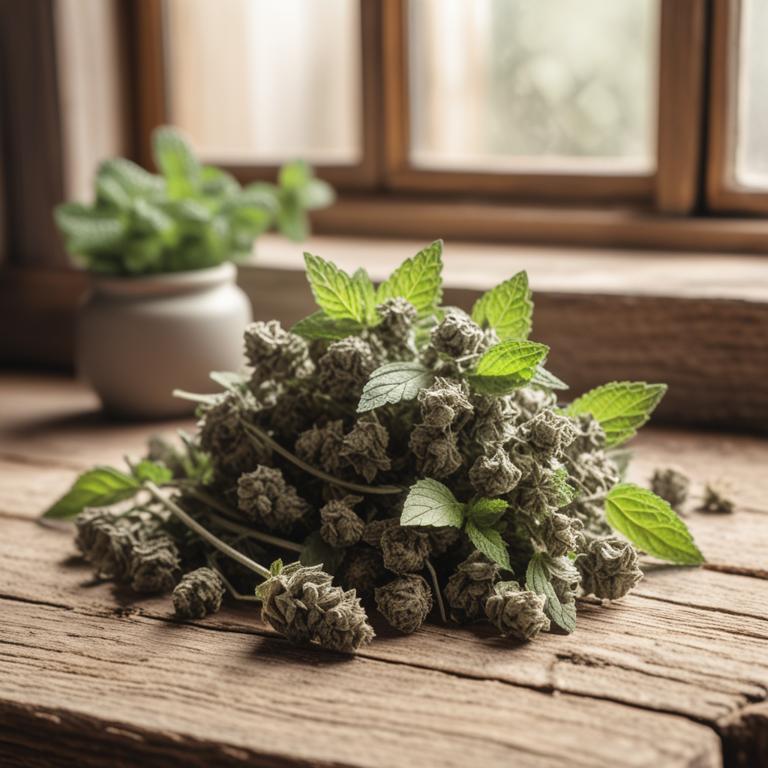
Migraine: Understanding the Causes and Herbal Remedies
